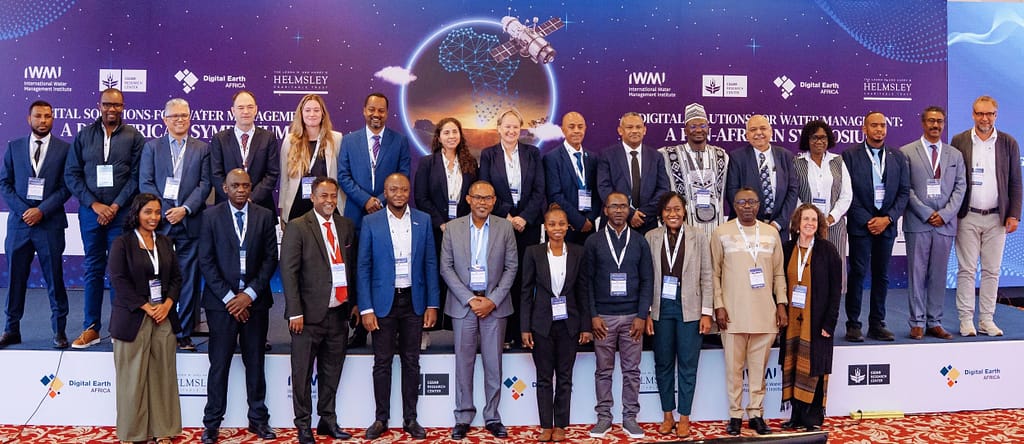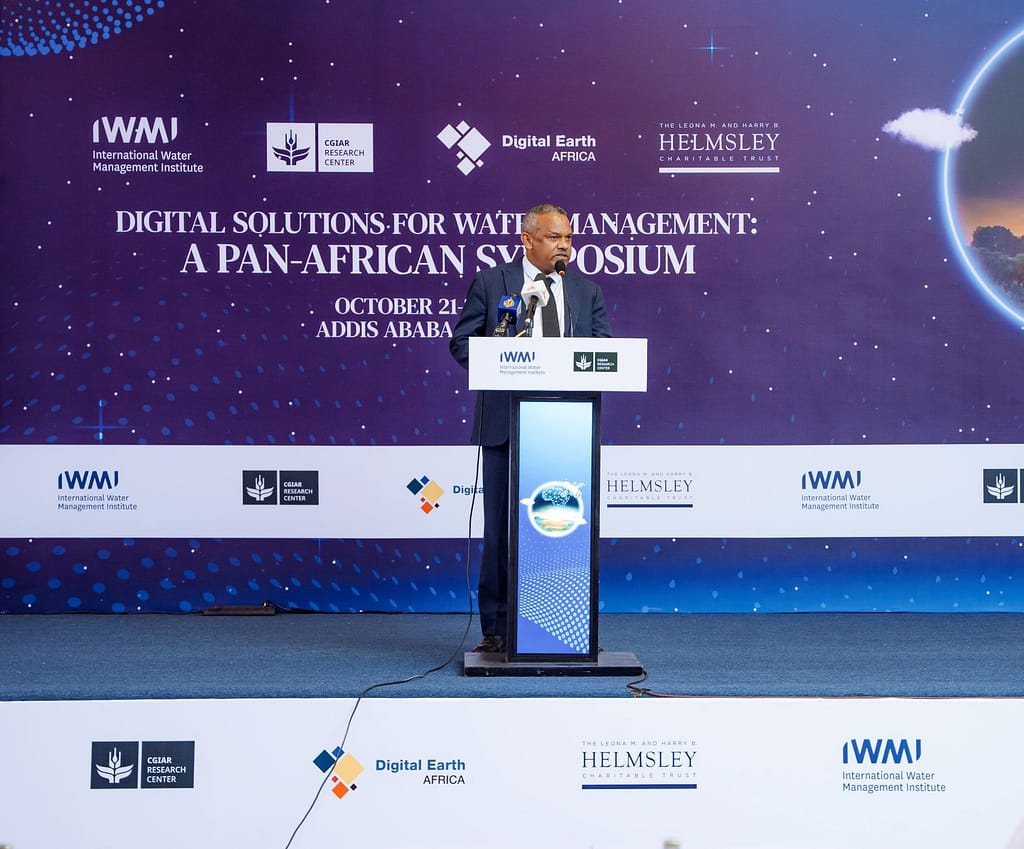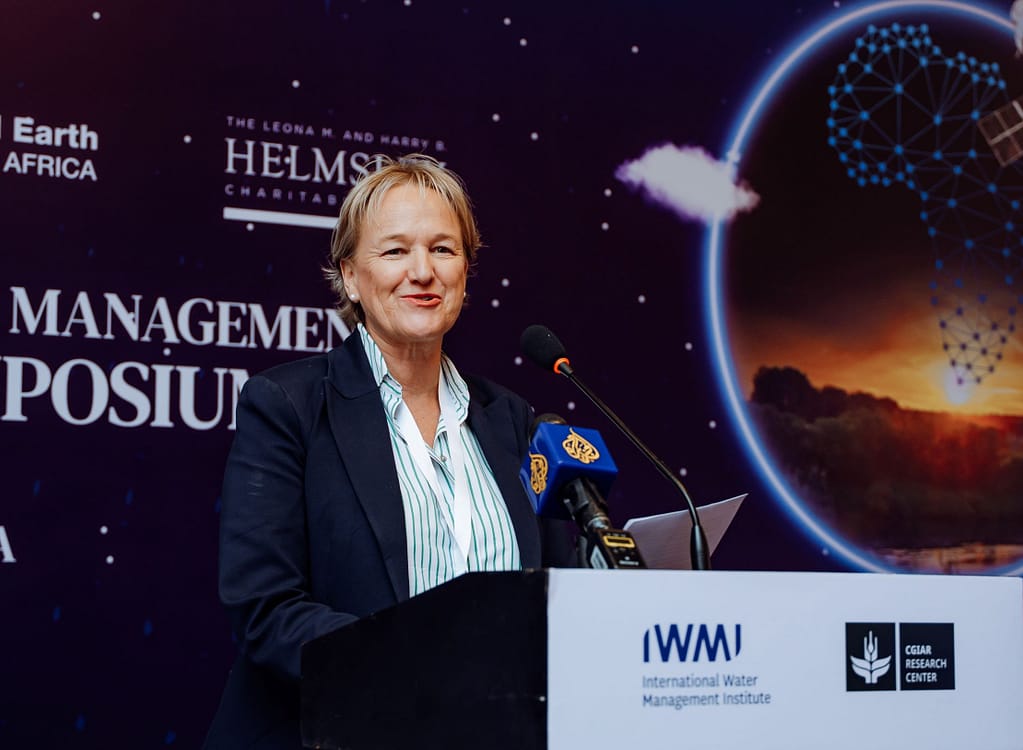
Africa’s water future depends on better data and smarter tools. Yet, the lack of investments to use satellite data and technology to manage the continents’ water resources remains a challenge. To explore how digital innovations can transform the way Africa manages its water resources, the Pan-African Symposium on Digital Solutions for Water Management took place from October 21–23, 2025 in Addis Adaba, Ethiopia. The symposium brought together government representatives, innovators, researchers and students from over 20 countries and was organized by the International Water Management Institute (IWMI) and Digital Earth Africa with support from The Helmsley Charitable Trust.
At the symposium’s opening, Abdisa Yilma, director general of Ethiopia’s Space Science and Geospatial Institute, emphasized the growing water challenges facing East Africa. “Ethiopia, for example, has many water bodies, but demand is rising rapidly across all sectors,” Yilma said. “To meet this demand, it is essential that we understand, protect and develop our water resources and make the data that supports these efforts accessible across Africa.”

Despite having vast water resources, only 6% of Africa’s Sustainable Development Goal targets on water are on track. The continent is also one of the most data-scarce regions globally, which constrains effective planning and decision-making. With climate extremes reshaping Africa’s landscapes, prolonged droughts, intense floods and growing uncertainty are underscoring the urgent need for collaboration to bridge Africa’s water data divide.
“Digital innovation is transforming what’s possible in water management,” said IWMI’s deputy director general — research for development, Rachael McDonnell, highlighting the central role of innovation in shaping Africa’s water future. “Access to accurate, timely data helps governments make better decisions, manage risks and invest in solutions that benefit both people and ecosystems.”

As traditional water monitoring systems decline, digital tools such as satellite imagery, open data platforms and new technologies are helping countries monitor water resources, assess drought and flood risks, and plan for climate variability. Yet, data alone is not enough. The ability to interpret, share and apply data effectively is key to managing water more effectively and equitably.

“Building digital skills is at the heart of Africa’s transformation,” said Kenneth Mubea, capacity development lead at Digital Earth Africa. “When Earth observation data becomes accessible and usable for every African nation, we empower decision-makers to act. This symposium is about turning that access into real change on the ground.”
Through digital tools and products, and partnerships like those showcased at the symposium, IWMI continues to work across Africa to bridge the gap between data and decision-making, ensuring that technological innovation contributes to a water-secure future for all.
The symposium gathered a wide range of partners, including Ethiopia’s Ministry of Water and Energy, Ministry of Foreign Affairs, Uganda’s Ministry of Water and Environment, Limpopo Watercourse Commission, World Bank, UN Economic Commission for Africa, regional water authorities such as Volta Basin Authority, research institutions and the private sector. This served as a reflection of the broad coalition needed to drive digital transformation in the water sector.
















